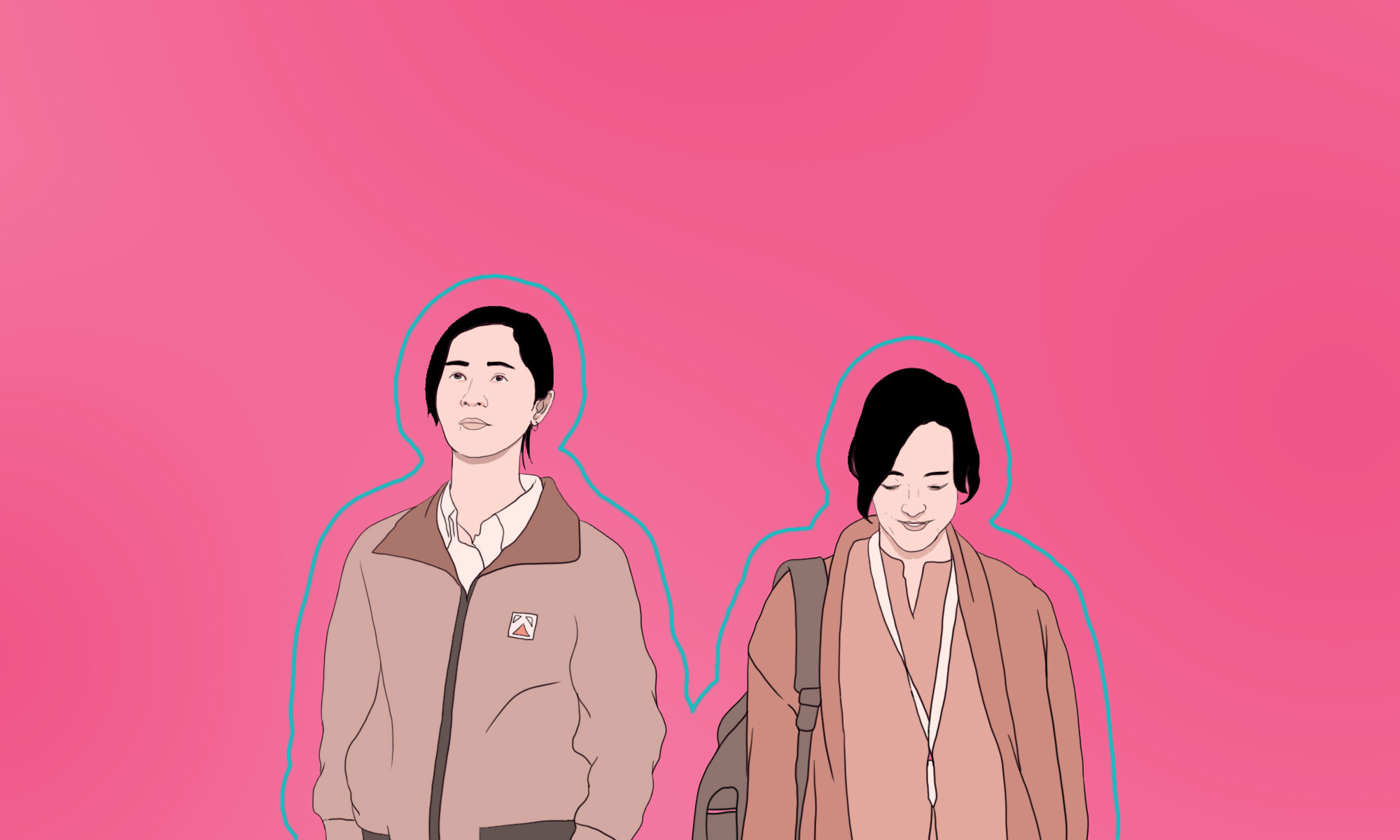Taiwan’s ruling DPP rocked by sexual misconduct allegations
A new Taiwanese political drama called “Wavemakers” has inspired victims of sexual harassment to come forward about their experiences, leading to a "MeToo moment" that has roiled the island's ruling political party.

A wave of sexual harassment and assault allegations has swept the Taiwanese political sphere, dominating headlines for more than a week. Numerous cases of sexual misconduct and mishandling of sexual harassment cases have come to light, most of them involving officials and members of the ruling Democratic Progressive Party (DPP). One Kuomintang (KMT) legislator has also been accused of sexual assault, and Chinese dissidents who live or have worked in Taiwan are also facing allegations.
Some Taiwanese media are labeling this wave of allegations a #MeToo moment — at the least, it’s the first time that victims in the political sphere have felt comfortable publicly discussing sexual harassment.
The spark was ignited by the release of Taiwan’s new hit show Wavemakers (人選之人 — 造浪者 rénxuǎn zhī rén — zào làng zhě), a Netflix drama about the lives of political campaign staff. In one subplot, a young party worker, Zhang Yajing (played by Wáng Jìng 王淨), is harassed by a coworker, and her superior, Weng Wenfang (played by Xiè Yíngxuān 謝盈萱), promises to help her properly report the incident, even after being dismissed by a leader of the party.
“We can’t just let this go,” Weng tells Zhang. “Many things can’t be dealt with like this. If they are, people will slowly die. We will die.”
Those are the words that opened a social media post on May 31 by a former DPP worker, who shared her experience of being sexually assaulted in a car following a campaign film shoot in September 2022. When the worker went to Hsu Chia-tien (許嘉恬 Xǔ Jiātián), then the director of the DPP’s women’s department, Hsu (according to the woman) replied coldly to her requests for help and questioned why she didn’t get out of the car.
“I also thought I could let this go,” she wrote, “but recently when I watched the show, I was overwhelmed and cried until I almost died…the person upholding women’s rights failed to become my Weng Wenfang, so I will become my own Weng Wenfang.”
Hsu resigned the next day, on June 1, and DPP chairman and 2024 presidential candidate Lai Ching-te (賴清德 Lài Qīngdé) issued a public apology. Lai said the party was opening an investigation into the case and that the DPP would adopt new measures to combat sexual harassment within the party. President Tsai Ing-wen (蔡英文 Cài Yīngwén) has apologized twice to the public in the past week and said she shared responsibility as a former party chairwoman herself.
Damage control and perceived hypocrisy
Since allegations arose last week, three DPP leaders have stepped down from their positions. The party has also announced new measures aimed at combating sexual harassment within the party by establishing a channel through which victims can directly report incidents, revising the party’s current rules and regulations, and adopting a “zero-tolerance” sexual harassment policy. The KMT has promised to investigate a claim made against a current legislator.
But this has not stemmed the flow of new allegations in the past week: a DPP official accused of harassing a member of the party’s Youth Department, another official accused of ignoring reports of sexual harassment from party workers, a KMT think tank researcher who has reportedly been the subject of “double-digit” allegations of misconduct.
During the same time period, the DPP’s approval rating has plummeted. Angela Ou, a former feminist organizer who now works at a think tank, pointed to the public’s perceived hypocrisy of the party, which has historically championed policies in support of gender equality.
“For the DPP to [now] look at their own headquarters and actually push through this kind of sexual harassment investigation system, it’s really, really late,” she said. “Those who care about gender issues will be waiting to see how the DPP is going to actually make changes inside their party and whether they are doing what they are promising right now.”
Wavemakers writers Chien Li-Ying (簡莉穎 Jiǎn Lìyǐng) and Ji Yan-Shih (厭世姬 Yàn Shìjī) are no strangers to politics. Both have participated in student movements, and Ji once worked as a marketing adviser on a political campaign. They spent over a year interviewing political aides, legislators, and city counselors before writing the show’s script and hoped to highlight issues in the show that were deserving of greater attention in Taiwan, according to an interview with the writers.
“Popular media has a lot of impact on how society views certain issues, especially women’s rights, sexual harassment, and things like this,” Darice Chang, an artist, filmmaker, and representative from the Taiwan Women’s March, told The China Project. “Positive media depictions of women empowering themselves and facing adversity [like in Wavemakers] is, I think, very important, and that’s why we are seeing the #MeToo movement taking off in Taiwan now and not when it was happening in the U.S. We needed that very localized example of a positive story that came out of sexual harassment.”
Chinese dissident writers and activists among the accused
On June 3, Chien came forward in her own social media post detailing a sexual assault experience with Chinese dissident poet Bèi Lǐng 貝嶺, who has lived in Taiwan for five years. (This journalist interviewed Bei for a story in The China Project last month.) After her initial post, five others reached out to Chien and shared similar experiences with Bei, who has denied Chien’s accusation.
Two people have also come forward with accusations of sexual assault against former Tiananmen Square student activist Wáng Dān 王丹, who now lives in the United States. One of the accusers, a man surnamed Li, wrote in a Facebook post that he was inspired by other victims who have come forward so far. On Wednesday, he filed a legal complaint against Wang, who has returned to Taipei to deal with the matter.
“Wang Dan’s position and political friends are members of the independence movement and the DPP. I call on everyone to choose their allies carefully. If you ignore someone’s hurtful actions just because you have similar positions, is that not collusion?” Li wrote on Facebook last week.
Wang has staunchly denied the accusations as “completely nonexistent.” On social media, he expressed support for the international #MeToo movement and said he looks forward to defending his case.
Taiwan’s National Tsing-Hua University’s Institute of Sociology, where Wang has worked as a guest lecturer, announced days later that it would cancel Wang’s planned course as it conducts an investigation into his behavior between 2010 and 2015, when the alleged events took place. If those investigations find that he violated Taiwan’s Gender Equality Law, he will not be able to teach at any university in Taiwan, according to CNA.
A movement overdue
Until now, Taiwan has not seen a #MeToo movement similar to that in the United States, Europe, or even China. While sexual assault and harassment prevention laws emerged thanks to feminist movements long before #MeToo, victim blaming is still prevalent in Taiwanese society, discouraging victims from coming forward. According to a survey conducted by the Ministry of Labor (MOL), 70% to 80% of respondents who said they had experienced sexual harassment in the workplace chose to remain silent.
“Taiwan has waited so long to have this kind of ‘me too’ moment to happen ever since it happened in the U.S. Of course, I hope that there are not a lot of victims in different fields, but I hope that these survivors coming out with their stories right now can encourage more people to talk about it,” Ou said.
Many in Taiwan are still reluctant to call the current moment Taiwan’s #MeToo moment — including Wavemakers writer Ji — until real structural change happens. Feminist activists have also emphasized that sexual harassment is an issue not limited to a single political party, and are trying to keep the focus on systemic change rather than politicization. Rights groups are calling on the government to amend Taiwan’s Act of Gender Equality in Employment in order to improve the process of filing sexual harassment complaints.
The MOL only ensures that workplaces have sexual harassment prevention policies, but victim services are lacking, said Wang Yue-hao, the CEO of Taiwan’s Garden of Hope Foundation. “Taiwan’s sexual harassment prevention laws still have many deficiencies or loopholes. This is why we are working hard to promote the revision of the law.”






